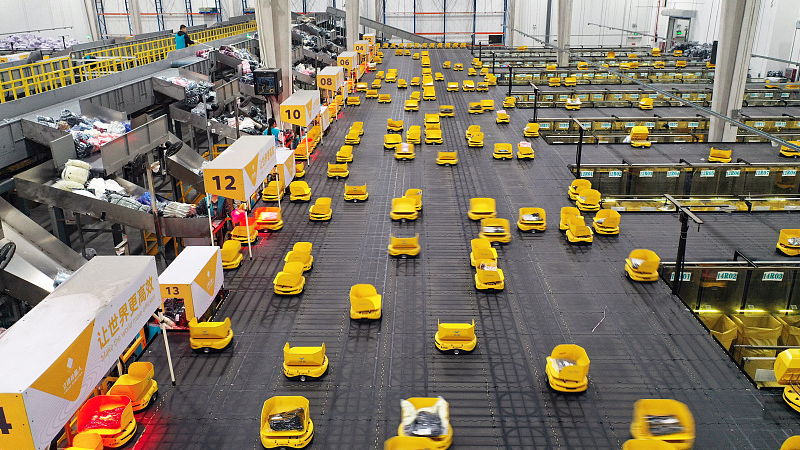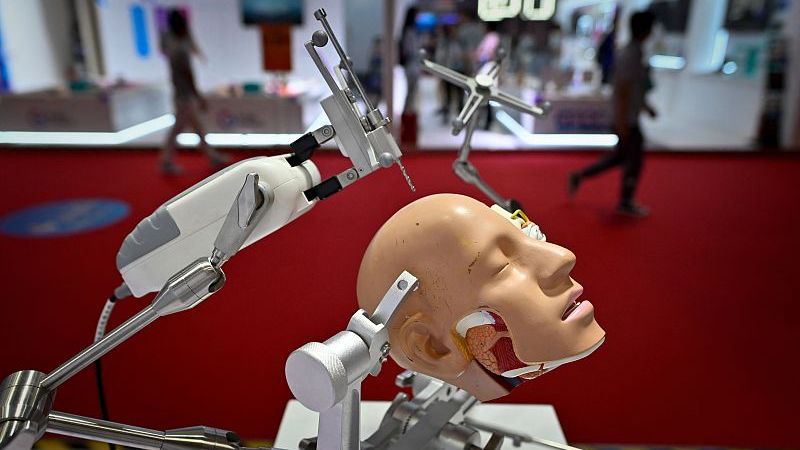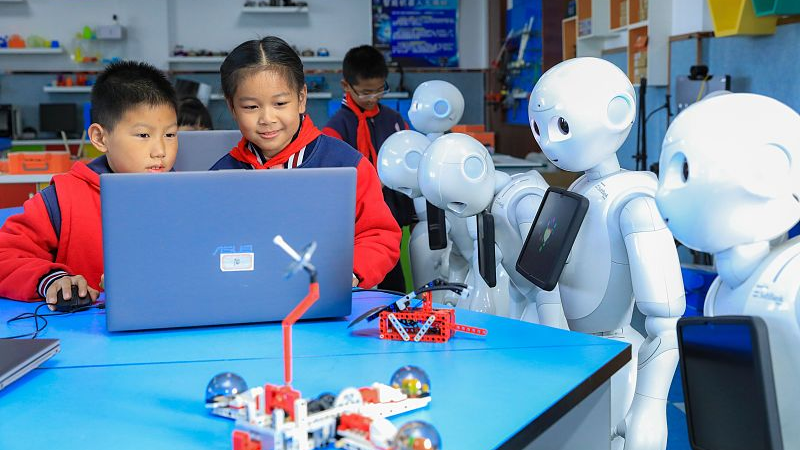BEIJING: From sophisticated brain surgery to sorting out thousands of package deliveries, robots have became an indispensable part in our daily lives.
China, the world’s largest robot consumer market, has been pushing forward robotic applications in multiple sectors to drive industry breakthroughs and market expansion.
Hao Yucheng, member of the National Intelligent Manufacturing Expert Committee said robotics is the emerging industry that has grabbed attention from all countries. “It is not only the technical equipment of the manufacturing industry, but also the infrastructure of the social and service industries. That’s why all countries care.”

The robot industry is booming in China, where 170 billion yuan worth of robots are sold each year. Throughout the years, the world’s number one manufacturer has put in use the largest legion of robots that dwarfs any other country. Robots are widely used in factories across China, especially in metropolises as Beijing, Shanghai and Shenzhen.
One of the industries that uses robots the most is the logistics industry, thanks to the robust expansion of e-commerce. Online shopping platforms and top logistics companies such as JD.com and SF Express are heavily invested in developing robotics technologies to improve efficiency.
JD.com has developed different types of robots to help pick and carry packages at its warehouses. In a warehouse in Beijing that sends hundreds of thousands of packages daily, the use of robots helped to boost efficiency by up to five times. The accuracy of package sorting robots achieved a whopping 99.9 percent.

A robotic surgery arm is pictured at the 2023 World Robot Conference in Beijing, August 16, 2023. /CFP
In the healthcare industry, Beijing-based Remebot developed positioning equipment that uses a robotic arm to help neurosurgeons conduct complex surgeries.
The equipment can be easily controlled regardless the neurosurgeons’ experience, according to Liu Da, founder and chairman of Remebot. “Because it relies on the robot’s intelligent and autonomous technologies, besides a person’s own capability,”.
Apart from the robotic arms and autonomous package pickers that are commonly seen in factories and distribution centers, humanoid robots are emerging as a new force in the industry for healthcare, entertainment and customer services purposes.
As humanoid robots usually feature the best technologies in the industry, the city of Beijing encourages the development of such machines, according to Su Guobin, deputy director of the Beijing Municipal Bureau of Economy and Information Technology.
“The development of the humanoid robots requires the highest level of aggregation of the supply chain and technologies,” said Su.

Students conduct tests on the humanoid robots in a primary school in Huzhou, Zhejiang Province, November 29, 2023. /CFP
Other cities also joined the race to introduce favorable policies to support the growth of humanoid robots. The southern city of Shenzhen pledged to speed the process by building an innovation center that promotes the development of humanoid robots. In Shanghai, an industrial park for algorithm developers is in the making.
The Ministry of Industry and Information Technology announced a guidance in November to speed-up development of humanoid robots. It aims to establish a preliminary innovation system for humanoid robots by 2025, and achieve breakthroughs in key technologies like the “brain, cerebellum and limbs” of robots.
Humanoid robot, which integrates advanced technologies such as artificial intelligence, high-end manufacturing and new materials, is expected to become the next disruptive product after smartphones.
Robots can also be used to save lives – a niche market but crucially useful in disastrous situations. Chinese companies have developed an array of special-purpose robots for real life heroes who risk their own lives for others’ safety, from firefighters to rescuers. In the city of Beijing, at least 300 companies are developing such robots.
According to the guidance, the key applications for robots will be in the sectors that include manufacture, agriculture, architecture, energy, logistics, healthcare, education, social care, community and emergencies.























